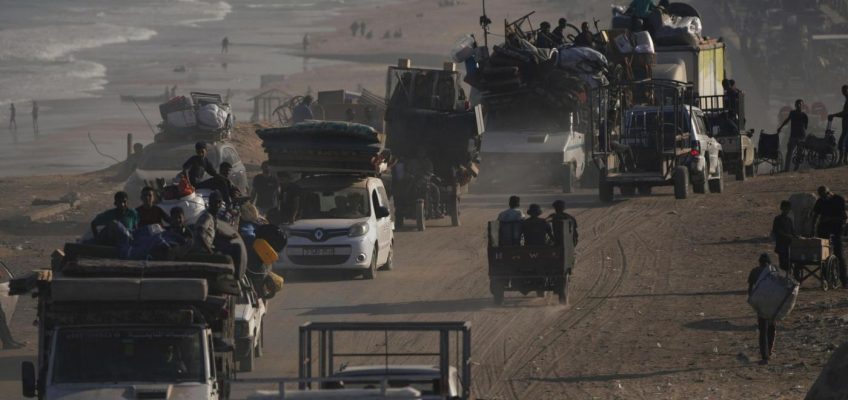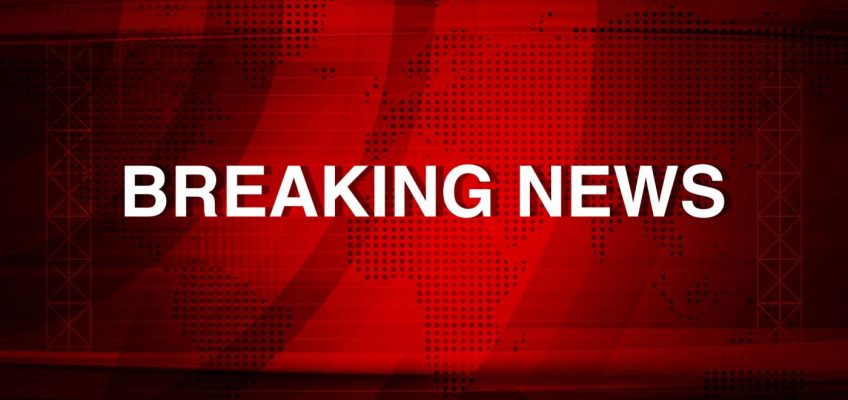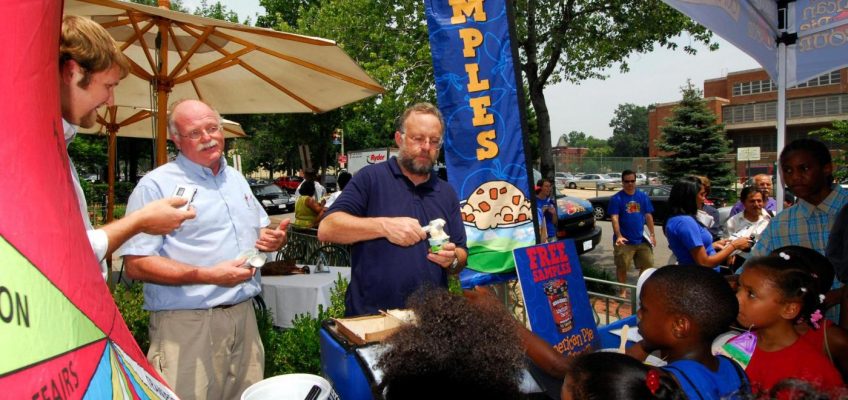By Jeff Ostrowski, Bankrate.com
Nearly everyone thinks the Federal Reserve will cut interest rates this week. That sentiment has translated to falling mortgage rates. Last week, the average 30-year fixed rate dropped to 6.38%, according to Bankrate’s national survey of lenders. Rates haven’t been this low in nearly a year.
Related Articles
Jerry quits Ben & Jerry’s, saying its independence on social issues has been stifled
Amid bankruptcy, some Publishers Clearing House winners are facing the end of ‘forever’ prizes
Ford to drop up to 1,000 jobs at German plant as demand for electric cars in Europe lags forecasts
‘Coolest Thing Made in Minnesota’: A look at this week’s matchups
Parents of teens who died by suicide after AI chatbot interactions to testify to Congress
“These lower rates reflect growing market optimism that the Federal Reserve is likely to cut rates at its next meeting on Sept. 17, with further cuts expected through the end of the year,” says Samir Dedhia, CEO of One Real Mortgage.
An important note: Mortgage rates are dictated not by central bank policy but by a complex array of factors, including 10-year Treasury yields and demand for mortgages among the investors who buy home loans. Reflecting signs of a slowing economy, 10-year Treasury rates recently flirted with 4%, well below the 4.5% levels seen earlier this year.
Even so, the economic data remains decidedly mixed. The Labor Department’s August jobs report came in weaker than expected, setting the stage for the Fed to cut rates. However, the August inflation report told a different story — price increases accelerated to 2.9%, moving further away from the Fed’s 2% target and arguing against a rate cut.
But if the Fed does cut rates by a quarter-point as expected, what will happen to mortgage rates? Alas, it’s not an easy question to answer, but here are some scenarios of how things could play out.
Scenario 1: Mortgage rates rise
We’ve seen this movie before: When the central bank cut its benchmark rate last year, mortgage rates rose.
In mid-September 2024, the average rate on 30-year loans was 6.2%, according to Bankrate’s national survey. Then, the Fed cut rates at three meetings in a row, cumulatively lowering its benchmark rate by a full percentage point. How did mortgage rates respond? They defied the Fed and shot up, rising above 7%.
That disconnect between the federal funds rate and mortgage rates suggests that even if the central bank trims rates twice this year, as most observers expect, mortgage rates could head back toward 7%.
Last year, mortgage rates zigged while Fed policy zagged, a clear reminder that the Fed doesn’t set mortgage rates. If recent history repeats itself, then the coming cut has already been built into mortgage rates, and they’ll go up from here — especially given the surprising stubbornness of inflation. The consumer price index (CPI) has been held aloft in part by President Donald Trump’s tariff policies.
“I expect rates to have some slight upward pressure as the market processes CPI data and the upcoming Fed meeting,” says Robert J. Smith, chief economist at GetWYZ Mortgage.
In this scenario, the recent optimism about lower rates quickly evaporates.
Scenario 2: Mortgage rates stay the same
Perhaps history doesn’t repeat itself. Maybe mortgage rates settle into the range of 6.25% to 6.5%. That would be a welcome relief from a recent run of elevated mortgage rates. They briefly hit 8% in 2023, then spent stretches of 2024 and 2025 above 7%.
In this scenario, mortgage rates enter a holding pattern as the market makes sense of conflicting economic data.
“A 25 basis point cut is almost a sure thing, and the market has baked that into the current rate level,” says Sean P. Salter, an associate professor of finance at Middle Tennessee State University. “I look for rates to remain in the current range until we get some better idea of the true state of the U.S. economy.”
Much of the recent decline in mortgage rates was spurred by the jobs report that came out in early September. It’s unlikely that the Fed’s move will lead to further declines in mortgage rates, says Phil Crescenzo Jr., vice president at Nation One Mortgage Corp.
If this is how the story plays out, it’s not all bad: The recent downturn in rates is getting some buyers and borrowers off the sidelines. The Mortgage Bankers Association’s Refinance Index increased 34% in early September from the same week a year ago, and its Purchase Index rose 23%, according to the trade group’s most recent report.
Scenario 3: Mortgage rates fall
Another possibility — and one that loan officers and real estate agents are hoping for — is that mortgage rates keep falling, and that the Fed keeps cutting. It’s a be-careful-what-you-wish-for scenario: Mortgage rates generally rise when the economy is revving, and they typically fall when the economy begins to sputter. So declining rates would probably follow continued weakness in the job market.
Rates at 6% or below wouldn’t be bad news in certain corners. Some discouraged homebuyers could decide to get off the sidelines and resume their home searches. And some of those homeowners who took mortgages at 7.5% could refinance into cheaper debt.
“We’ve seen a consistent stream of data pointing to cooling inflation and a softer labor market, which together create downward pressure on yields,” says Dr. Anthony O. Kellum, president and CEO of Kellum Mortgage in Roseville, Michigan. “The bond market has already started to reflect this sentiment, with investors positioning for the likelihood that the Fed will begin easing later this year. That shift in expectations tends to trickle directly into mortgage rates. While volatility is always possible, especially if unexpected economic reports surface, the overall momentum feels tilted toward slightly lower rates in the near term.”
©2025 Bankrate.com. Distributed by Tribune Content Agency, LLC.




